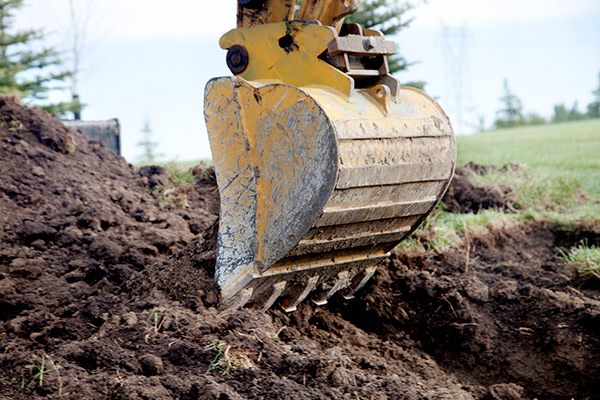Comprehensive Excavation Approaches: Grasping the Fundamentals for Success
The mindful preparation, exact execution, and meticulous interest to information called for in excavation tasks demand an extensive strategy that incorporates numerous basic elements. The real mastery lies not just in recognizing these basics but in seamlessly incorporating them to browse the intricacies of excavation tasks with skill.
Recognizing Excavation Job Planning

The preliminary phase of any kind of excavation job is the planning phase, where critical choices are made that can significantly impact the result of the task. Comprehending the task timeline, budget plan, and scope restrictions is crucial for developing a thorough excavation strategy that makes sure the job's success.
One key facet of excavation task planning is the growth of an in-depth timeline that outlines the series of turning points, due dates, and tasks. By thoroughly taking into consideration all these variables throughout the planning phase, excavation projects can be implemented efficiently and successfully, leading to successful results - lancaster trenching.
Soil Analysis and Site Evaluation
Performing thorough soil evaluation and website analysis is a vital action in the prep work stage of any excavation job. Soil analysis entails identifying the structure, structure, and residential properties of the soil at the excavation website. This info is crucial for recognizing the soil's bearing capacity, dampness material, and capacity for erosion, which are essential aspects in figuring out the excavation methods and devices required for the project.
Site assessment goes beyond dirt evaluation and encompasses a more comprehensive evaluation of the general website conditions. This evaluation includes recognizing any type of potential risks, such as underground energies, ecological issues, or unsteady terrain, that could impact the excavation process. By extensively assessing the site, task supervisors can develop effective excavation strategies that prioritize security, performance, and environmental management.
Utilizing innovative modern technologies like ground-penetrating radar, dirt sampling, and drone surveys can boost the precision and performance of soil analysis and site assessment. Investing time and resources in these initial actions can inevitably conserve time and stop pricey hold-ups or difficulties throughout the excavation process.
Equipment Selection and Application
Reliable excavation tasks rely heavily on critical equipment option and use to make certain ideal performance and performance. Selecting the best equipment for the job is important in making the most of effectiveness and reducing downtime. Variables such as the sort of soil, deepness of excavation, and job scope play a considerable duty in establishing the most suitable other tools for the task available.

Along with selecting the appropriate equipment, proper utilization is key to project success. Operators needs to be educated to take care of the devices safely and efficiently - lancaster trenching. Routine maintenance checks and timely repair work assist stop malfunctions and make sure constant performance throughout the job
Security Measures and Regulations Compliance
In the world of excavation jobs, prioritizing precaution and conformity with regulations is critical to guaranteeing a safe and legally audio functional setting. Safety and security procedures encompass a series of practices, including carrying out complete website analyses, carrying out appropriate signs and barriers, and offering adequate safety training for all personnel involved in the excavation procedure. Adherence to guidelines, such as OSHA needs in the United States, ensures that the excavation project satisfies the needed criteria to shield workers, spectators, and the surrounding setting.

Monitoring Progress and Adjusting Strategies
Just how can forecast managers effectively track the development of excavation tasks and adjust their methods appropriately to optimize outcomes? browse around this site Surveillance development is vital for guaranteeing that excavation projects remain on track and fulfill due dates. Task managers can make use of different tools and strategies to track development, such as daily report card, normal site examinations, and progressed monitoring modern technologies like drones and GPS tracking systems. By continually checking the job's innovation, managers can recognize any type of possible delays or concerns at an early stage and take proactive procedures to address them.

Verdict
To conclude, grasping the basics of detailed excavation methods is necessary for the success of any task. By recognizing task preparation, assessing dirt and site problems, choosing appropriate equipment, following safety and security policies, and keeping track of progression, project supervisors can guarantee a smooth and reliable excavation procedure. Executing these approaches will bring about successful end results and minimize prospective risks or obstacles learn this here now throughout the excavation job.
The initial stage of any excavation job is the planning phase, where crucial choices are made that can substantially impact the result of the project. Recognizing the project budget, timeline, and range restraints is essential for producing a thorough excavation plan that guarantees the job's success.
Just how can predict managers efficiently track the innovation of excavation projects and adapt their techniques as necessary to optimize outcomes? By closely keeping an eye on progression and being willing to adjust strategies, project managers can improve the general success of excavation jobs.
By comprehending job planning, examining dirt and website conditions, choosing ideal equipment, abiding with safety regulations, and keeping an eye on progress, project supervisors can ensure a smooth and efficient excavation process.